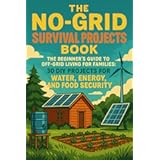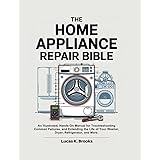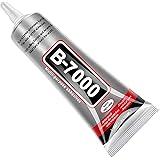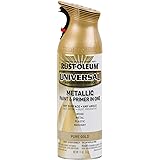Unlock the Power of DIY Cleaners: Effective & Affordable Homemade Solutions
Have you ever found yourself staring at a grocery store aisle, overwhelmed by the sheer number of cleaning products, each promising a miracle yet boasting a price tag that makes your wallet wince? Or perhaps you’ve worried about the harsh chemicals lurking in those brightly colored bottles? It’s a common dilemma. However, as the insightful video above illustrates, there’s a compelling alternative: crafting your own **DIY cleaners** right in your kitchen. These homemade cleaning solutions can be just as potent, often more eco-friendly, and consistently lighter on your budget than their store-bought counterparts. Let’s dive deeper into the world of **homemade cleaning products**, exploring the recipes, benefits, and practical applications that will transform your cleaning routine from a chore into a fulfilling act of self-sufficiency. You might be surprised at the versatility and power these simple concoctions hold.Your Go-To: The All-Purpose DIY Cleaner
Just as a Swiss Army knife is indispensable for its many functions, a reliable all-purpose cleaner is the cornerstone of any effective cleaning arsenal. Melissa rightly calls it her “ride or die” for a reason; this workhorse solution is incredibly easy to prepare and versatile enough for daily use across most water-safe surfaces in your home. It’s like magic in a bottle, but without the mystery ingredients or the hefty cost. The beauty of this particular homemade cleaner lies in its simplicity and sheer effectiveness.
Ingredients & Instructions for Your All-Purpose Cleaning Solution:
- **Water:** Approximately 2 cups (fill your spray bottle almost to the top).
- **Dish Soap:** About ½ teaspoon to 1 teaspoon of your favorite liquid dish soap.
Combine these two ingredients in a spray bottle. Give it a gentle shake to mix, and you’re ready to tackle dirt and grime. Unlike many commercial products that leave sticky residues, this solution lifts dirt efficiently. However, remember to use a modest amount of dish soap. Too much can lead to sudsing and the need for extra rinsing, counteracting its ‘all-purpose’ ease.
Optimal Usage & Benefits:
Spray directly onto surfaces for general cleaning or, for more control and to protect sensitive areas (like those with electronic components), mist your microfiber cloth instead. This method prevents oversaturation and ensures a streak-free finish. Its gentle yet effective nature makes it suitable for countertops, appliances, light fixtures, and even spot-cleaning walls. The cost-effectiveness is astounding; you’re literally paying pennies per batch for a cleaner that performs as well as, if not better than, many store-bought options.
Natural Stone Surfaces: A Gentle, Effective Homemade Cleaner
Natural stone countertops — granite, marble, quartz — are beautiful but can be notoriously finicky. Many commercial cleaners can etch, dull, or strip the sealant, leaving you with an expensive repair bill. While specialty stone cleaners can be quite pricey, designed to prey on your protective instincts, the truth is, you can formulate a perfectly safe and effective alternative at home. This specific DIY cleaner is designed with delicate surfaces in mind, ensuring a pristine finish without harsh chemicals.
Crafting Your Natural Stone Counter Cleaner:
- **Water:** 1 ¾ cups.
- **Dish Soap:** 1 teaspoon (again, just enough to lift dirt, not to create excessive suds).
- **Rubbing Alcohol:** ¼ cup (for quick drying and a streak-free shine).
- **Essential Oil:** A few drops of your favorite (e.g., orange, lemon, lavender) for a pleasant aroma.
Combine all ingredients in a spray bottle and shake well. This blend is safe for sealed stone surfaces. The rubbing alcohol is the star here, helping the solution evaporate quickly, which is crucial for preventing water spots and streaks on natural stone. In contrast, many conventional cleaners leave behind a film, necessitating a secondary rinse, a step this solution eliminates.
Why This Recipe Works Wonders:
The minimal soap content ensures no residue is left behind, which is a common problem with DIY recipes that use too much detergent. The rubbing alcohol acts as a drying agent, ensuring a sparkling, streak-free finish that truly highlights the beauty of your stone. Additionally, the essential oils offer an aromatic experience, turning a routine cleaning task into a refreshing moment.
Eradicate Mold & Mildew with Borax and Vinegar
Finding mold or mildew on window sills, shower grout, or other damp areas can be disheartening. It’s not just unsightly; it can also affect air quality. While you might reach for harsh chemical bleaches, a powerful and less aggressive solution can be found in your pantry: Borax and white vinegar. This duo tackles fungal growth effectively, restoring brightness without the intense fumes.
Your Recipe for a Mold & Mildew Eraser:
- **Borax:** A generous amount (enough to form a paste).
- **White Vinegar:** Enough to create a thick paste with the Borax.
First, physically remove as much loose mold and mildew as possible using a cleaning toothbrush or a vacuum with a brush attachment. This prevents spreading spores during the cleaning process. Next, mix the Borax and white vinegar to create a paste. Apply this paste directly to the affected area. Using a scrub brush or a cleaning toothbrush, agitate the area gently. The abrasive nature of the Borax, combined with the acidic properties of vinegar, works to lift and eliminate the growth.
Beyond the Basics: How It Works:
Borax is a natural mineral compound that acts as a powerful cleaner, deodorizer, and disinfectant. Its mild alkalinity helps to inhibit mold growth. White vinegar, a natural acid, further enhances mold-killing properties and breaks down buildup. As the paste sits, Borax also has a whitening and brightening effect, which is particularly beneficial for restoring discolored grout or window sills. After letting it sit for a bit, simply rinse the area thoroughly, and you should see a significant improvement.
Achieving a Streak-Free Shine: Homemade Glass Cleaner
Streaky windows and mirrors are a common frustration, making even a meticulously cleaned room feel less than perfect. Many commercial glass cleaners promise a streak-free finish but often fall short or contain dyes that can leave a film. Melissa’s journey into professional cleaning started with this very realization – that a simple, homemade glass cleaner could outperform the “blue stuff.” It’s a testament to the fact that sometimes, less truly is more, especially when it comes to **DIY cleaners**.
Formulating Your Own Glass & Mirror Cleaner:
- **Water:** Fill your spray bottle halfway.
- **White Vinegar (5% acidity):** Fill the remaining half of the bottle.
- **Essential Oil:** A few drops of peppermint or citrus oil for a fresh scent.
Combine the water and vinegar in a spray bottle, adding your essential oils. Shake gently to mix. When cleaning glass, the choice of cloth is as crucial as the solution itself. A flat-weave microfiber cloth is recommended, as its unique structure is designed to pick up dirt and moisture without leaving behind lint or streaks. Using a paper towel, in contrast, can often lead to undesirable lint particles.
The Science of Shine:
The acetic acid in white vinegar is a formidable degreaser and naturally cuts through fingerprints, smudges, and soap residue, which are common culprits for streaky glass. When paired with a quality flat-weave microfiber cloth, the combination is unstoppable. The cloth absorbs the dissolved grime and solution without leaving behind fibers, ensuring a crystal-clear, brilliant finish that no “blue stuff” can truly replicate.
Banish Soap Scum: The Ultimate DIY Buster
Soap scum: that unsightly, textured gray coating that transforms your shower or tub from pristine to neglected. It’s a stubborn opponent, formed by the reaction of soap with hard water minerals. While numerous commercial “soap scum busters” exist, many rely on harsh chemicals and strong fumes. Thankfully, a simple, incredibly effective, and inexpensive **DIY cleaner** can restore your bathroom surfaces to their former glory.
Your Recipe for a Soap Scum Buster:
- **White Vinegar:** ½ cup.
- **Dish Soap:** ½ cup.
- **Essential Oil:** A few drops of your choice (optional, but enhances the experience).
Mix the white vinegar and dish soap in a spray bottle. Add essential oils if desired and give it a good shake. This potent combination creates a powerful solution that adheres to surfaces and breaks down soap scum with surprising ease. The acidity of the vinegar dissolves the mineral deposits, while the dish soap tackles the greasy, organic components of the scum.
Application for Sparkling Results:
Spray the solution generously onto the affected areas in your bathtub, shower walls, or glass doors. Let it sit for 5-15 minutes, allowing the solution to penetrate and break down the scum. Then, using a non-scratching sponge (especially important for acrylic tubs), scrub the surface. You’ll be amazed at how easily the scum lifts away. Rinse thoroughly with water, and for that ultimate, polished look, buff the surface dry with a clean microfiber cloth. This final step is key to achieving a truly dazzling shine, preventing new water spots from forming as it dries.
Beyond DIY: Understanding the 60/40 Split in Cleaning
While the power of **DIY cleaners** is undeniable, it’s also important to have a balanced perspective. Melissa wisely points out that not all cleaning products in her home are homemade, maintaining about a 60/40 split between DIY and store-bought. This isn’t a contradiction; rather, it’s a pragmatic approach to cleaning. Homemade solutions excel in many everyday scenarios, offering cost savings and natural alternatives for general cleaning, glass, and even specific challenges like mold and mildew.
However, some cleaning tasks demand the specialized formulations that only extensive research and development from dedicated companies can provide. Products like heavy-duty laundry detergents, rust removers (e.g., Bar Keepers Friend), or specialized polishers (like Peek) often contain unique chemical compounds or abrasive agents that cannot be replicated with pantry staples. These commercial products fill a niche where intense cleaning power or very specific material care is required. Understanding this balance allows you to maximize the benefits of homemade options while still leveraging the innovation of commercial products when necessary, ensuring your home is both clean and well-maintained.







